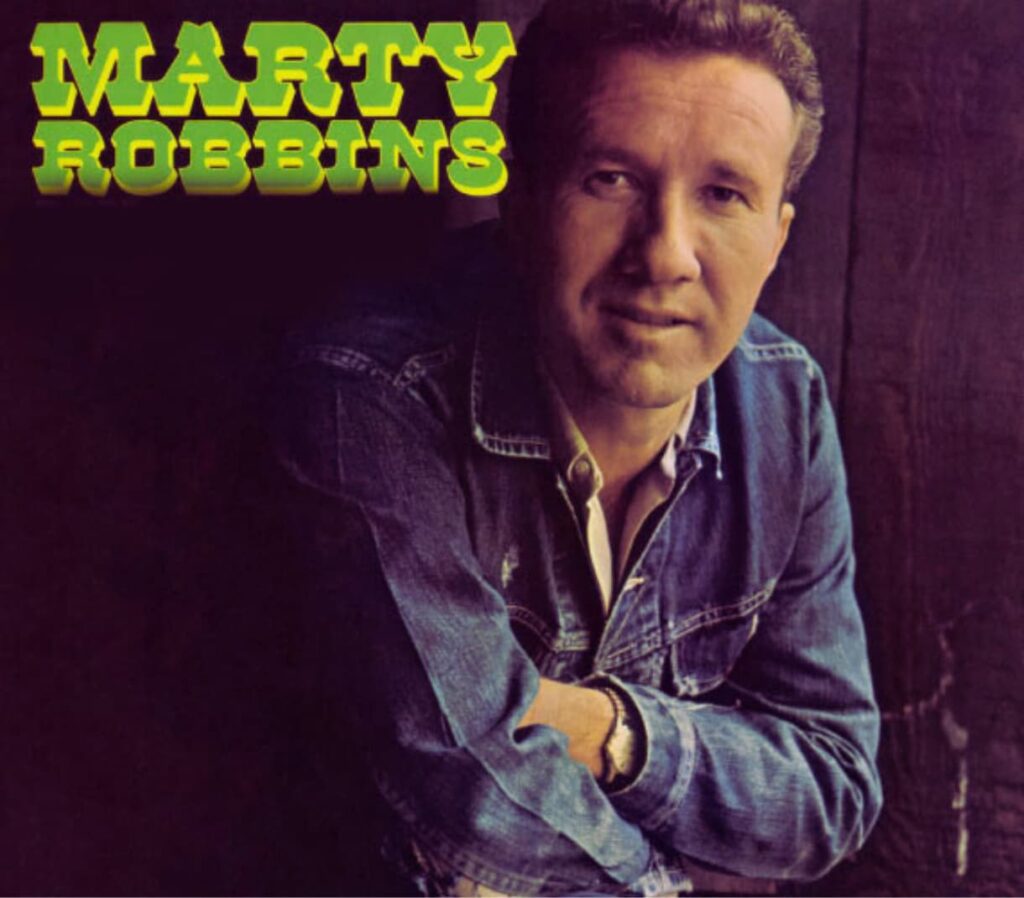
A Melancholy Echo of Youthful Folly and Enduring Love
Ah, the melodies of yesteryear often carry with them a bittersweet fragrance, don’t they? A whisper of times long past, of loves found and lost, of lessons learned under a sky that seemed impossibly vast. And few songs capture that particular ache, that poignant blend of innocence and experience, quite like Marty Robbins‘ timeless classic, “She Was Only Seventeen (He Was One Year More)”. Released in 1958, a year brimming with the nascent energy of rock and roll yet still steeped in the rich tradition of country storytelling, this gem found its place on the country charts, peaking at a respectable number four on Billboard’s Hot Country Songs chart. It wasn’t a crossover pop smash, perhaps, but its gentle, reflective narrative resonated deeply with the hearts of country music lovers, securing its enduring legacy.
The beauty of “She Was Only Seventeen” lies not just in its melodic simplicity, but in the raw, unvarnished truth of its narrative. Marty Robbins, a master craftsman of song, didn’t need elaborate metaphors or complex orchestrations to convey profound emotion. He painted vivid pictures with plain language, and this song is a prime example. It tells the tender, yet ultimately tragic, tale of young love, born in the innocence of youth and tested by the harsh realities of a world not quite ready for such fervent devotion. The “story behind” it, in essence, is the universal story of first love – a feeling so intense it feels like it will last forever, even when the world around you whispers of its fleeting nature.
The song introduces us to a young couple, barely more than children, their love blossoming under the watchful, yet perhaps unseeing, eyes of their elders. “She was only seventeen, he was one year more,” the opening lines immediately establish their tender age, setting the stage for a narrative steeped in vulnerability. Their decision to elope, driven by youthful impetuosity and an unwavering belief in their bond, becomes the central axis of the story. It’s a choice many a young heart has contemplated, fueled by dreams of a future unburdened by societal constraints. But as the song gently unfolds, we realize the path they’ve chosen is fraught with peril. The narrative doesn’t preach or judge; instead, it observes with a profound sense of empathy, allowing the listener to witness the unfolding drama as if from a quiet, reflective distance.
The meaning of “She Was Only Seventeen” transcends its simple narrative. It speaks to the enduring power of love, even in the face of adversity, and the profound impact of youthful decisions. It’s a lament for what might have been, a wistful glance back at a road not taken, or perhaps, a road taken too soon. The song’s power lies in its ability to evoke a deep sense of nostalgia for our own youth, for those first dizzying plunges into love, and for the sometimes-painful lessons learned along the way. For older listeners, it’s a mirror reflecting cherished memories, both sweet and sorrowful. We recall our own youthful exuberance, our own moments of reckless abandon, and perhaps, the quiet wisdom that only time can bestow.
Beyond the immediate story, the song serves as a poignant reminder of the social mores of the time. In 1958, youthful elopement carried a different weight, often leading to ostracization and hardship. Robbins, with his characteristic sensitivity, doesn’t shy away from these unspoken pressures. The absence of parental approval, the implied disapproval of society, all contribute to the somber undertones of the narrative. Yet, despite the tragic turn of events – the unspoken heartbreak and the separation that ultimately befalls the young couple – there’s an underlying current of enduring love. The “one year more” in the title isn’t just a numerical detail; it hints at a slightly older, perhaps more burdened, perspective that carries the weight of memory and longing.
“She Was Only Seventeen (He Was One Year More)” is more than just a song; it’s a miniature play, a three-act drama condensed into a few heartfelt verses. It’s a testament to Marty Robbins‘ unparalleled ability to craft narratives that resonate deeply with the human experience. It’s a quiet, reflective masterpiece that continues to tug at heartstrings, reminding us that some stories, like some loves, are truly timeless. And as the final notes fade, we are left with a lingering sense of wistful melancholy, a gentle reminder of the tender, fleeting beauty of youth and the enduring echoes of a love that, though perhaps lost to time, remains forever etched in the annals of memory.